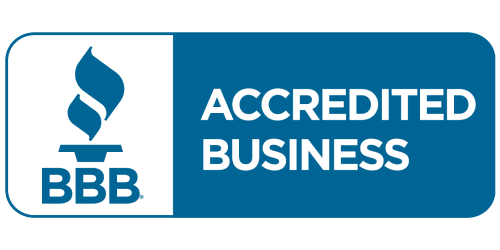When you’re fighting an employment lawsuit against your current or former employer, the financial stress can be overwhelming. Employment lawsuit loans provide the essential support you need while pursuing justice for workplace discrimination, harassment, wrongful termination, or wage theft. These cases often take months or years to resolve through the legal system. Meanwhile, you may be unemployed or facing retaliation that affects your ability to find new work.
You shouldn’t have to choose between pursuing justice for workplace violations and supporting your family financially. That’s where 123 Lawsuit Loans comes in to help. We provide employment lawsuit funding to cover your essential expenses while your attorney fights for fair compensation and holds employers accountable for their illegal actions.
The Reality of Employment Law Violations
Workplace violations are more common than most people realize. The Equal Employment Opportunity Commission receives over 75,000 discrimination charges each year. State agencies handle thousands more cases involving wage theft, wrongful termination, and other employment violations.
Common Types of Employment Cases
Discrimination Cases – Employers who treat workers unfairly based on race, gender, age, disability, or other protected characteristics face legal liability. These cases often involve patterns of unfair treatment that affect multiple employees.
Sexual Harassment – Unwelcome sexual advances, inappropriate comments, and hostile work environments create legal liability for employers. These cases often involve both individual harassment and company failures to address complaints.
Wrongful Termination – Employees fired for illegal reasons like reporting violations, filing complaints, or refusing to break the law have strong legal claims against their employers.
Wage and Hour Violations – Employers who fail to pay proper wages, overtime, or benefits face legal action from affected employees. These cases often involve systematic violations affecting many workers.
Retaliation – Employers who punish workers for reporting violations, filing complaints, or participating in investigations face additional legal liability beyond the original violations.
Why Employees Don’t Report Violations
Fear of Job Loss – Many workers don’t report violations because they need their jobs to support their families. This fear allows employers to continue illegal practices.
Employer Resources – Companies have legal teams and financial resources that individual employees can’t match. This imbalance makes employees reluctant to pursue legal action.
Long Legal Process – Employment cases take months or years to resolve. Workers need immediate income but legal proceedings move slowly through government agencies and courts.
Employment lawsuit loans help level the playing field by providing financial stability while workers pursue justice against employers with superior resources.
Types of Employment Violations and Legal Claims
Employment law covers many different types of workplace violations. Each type creates specific legal issues and potential sources of compensation for affected workers.
Discrimination and Civil Rights Violations
Race Discrimination – Employers who treat workers unfairly because of race face federal and state civil rights violations. These cases often involve hiring, promotion, discipline, or termination decisions based on racial bias.
Gender Discrimination – Unequal pay, promotion denials, or different treatment based on gender creates legal liability. These cases often reveal systemic problems affecting multiple female employees.
Age Discrimination – Employers who target older workers for layoffs or deny promotions based on age violate federal law. These cases often involve companies trying to reduce payroll costs.
Disability Discrimination – Failing to provide reasonable accommodations or discriminating against disabled workers creates legal liability under the Americans with Disabilities Act.
Harassment and Hostile Work Environment
Sexual Harassment – Unwanted sexual advances, inappropriate comments, or sexual conduct in the workplace creates employer liability. These cases often involve supervisors or coworkers who create hostile work environments.
Racial Harassment – Racial slurs, offensive jokes, or discriminatory treatment based on race creates hostile work environments. Employers who allow this behavior face legal liability.
Religious Harassment – Discrimination or harassment based on religious beliefs violates federal law. Employers must accommodate religious practices and prevent harassment.
Wage and Hour Violations
Unpaid Overtime – Employers who fail to pay time-and-a-half for hours over 40 per week violate federal wage laws. These violations often affect multiple employees over several years.
Minimum Wage Violations – Paying below minimum wage or making illegal deductions from paychecks creates legal liability. These cases often involve systematic violations affecting many workers.
Break and Meal Period Violations – Employers who deny required breaks or meal periods in states that mandate them face legal action from affected workers.
Off-the-Clock Work – Requiring employees to work without pay before or after shifts violates wage laws. These violations often involve time clock manipulation or unpaid preparation work.
Employment lawsuit loans provide financial support while attorneys investigate these various violations and build comprehensive cases for maximum compensation.
The Financial Challenge of Suing Your Employer
Employment lawsuits create unique financial pressures because workers often lose their jobs when they file complaints or lawsuits against employers. This creates immediate financial crisis during legal proceedings.
Job Loss and Unemployment
Termination After Complaints – Many employers fire workers who file discrimination or harassment complaints. This retaliation is illegal but creates immediate income loss for affected workers.
Difficulty Finding New Jobs – Former employers sometimes provide negative references or industry contacts learn about pending lawsuits. This can make finding new employment difficult.
Reduced Unemployment Benefits – Workers fired “for cause” may have difficulty getting unemployment benefits. Employers often contest claims to avoid paying higher unemployment taxes.
Extended Legal Timelines
EEOC Process Requirements – Federal discrimination cases require filing charges with the Equal Employment Opportunity Commission before lawsuits can proceed. This process takes months or years.
State Agency Requirements – Many states require filing with state civil rights agencies before federal or state court lawsuits. These agencies have limited resources and long backlogs.
Discovery and Investigation – Employment cases require extensive document review, depositions, and investigation. This process takes months while workers need immediate income.
Family Financial Impact
Health Insurance Loss – Losing employer-provided health insurance creates immediate financial pressure for workers and their families. COBRA coverage is expensive and temporary.
Mortgage and Rent Payments – Housing costs continue during unemployment and legal proceedings. Many workers face foreclosure or eviction while pursuing employment cases.
Family Support Needs – Children’s expenses for school, healthcare, and basic needs don’t pause during employment disputes. Single parents face particular financial pressure.
Legal Costs and Expenses
Attorney Fees – Employment attorneys often work on contingency, but workers may need to pay for case expenses, expert witnesses, and court costs during litigation.
Document Production Costs – Employment cases require copying thousands of documents, court reporters for depositions, and other litigation expenses that add up quickly.
Employment lawsuit loans provide crucial financial relief during these extended periods of unemployment and legal proceedings.
How Employers and Their Insurance Companies Respond
Employers facing employment lawsuits typically have substantial resources and experienced legal teams. They use various strategies to minimize liability and discourage workers from pursuing claims.
Immediate Damage Control
Investigation Teams – Large employers often have internal investigators and outside law firms that respond immediately to complaints. They work to limit evidence and control the narrative.
Settlement Offers – Employers sometimes make quick settlement offers to resolve complaints before they become formal lawsuits. These offers are typically much lower than potential case values.
Workplace Changes – Companies may implement new policies or training programs to show good faith, but these changes don’t compensate workers for past violations.
Legal Defense Strategies
Denial of Violations – Employers typically deny any wrongdoing and claim that employment decisions were based on legitimate business reasons rather than discrimination or retaliation.
Employee Performance Claims – Companies often point to performance issues or policy violations to justify adverse employment actions, even when the timing suggests retaliation.
Witness Intimidation – Employers may pressure current employees not to cooperate with investigations or provide testimony that supports the complaining worker’s case.
Settlement Negotiation Tactics
Financial Pressure Exploitation – Knowing that unemployed workers face immediate financial pressure, employers often delay settlement negotiations hoping workers will accept low offers.
Confidentiality Requirements – Employers typically require confidentiality agreements that prevent workers from discussing settlements. This helps hide patterns of violations from other employees.
Structured Payments – Companies prefer settlements paid over time rather than lump sums, reducing immediate financial impact on their operations.
Insurance Company Involvement
Employment Practices Liability Insurance – Many employers carry insurance that covers employment lawsuits. Insurance companies often control defense strategies and settlement decisions.
Coverage Disputes – Insurance companies may dispute coverage for certain types of claims, forcing employers to pay defense costs and settlements directly.
Having employment lawsuit loans removes the financial pressure that employers and insurance companies use to force workers into inadequate settlements.
Government Agency Processes and Timelines
Employment cases often require filing complaints with government agencies before lawsuits can proceed. These processes create additional delays while workers need immediate financial support.
EEOC Charge Process
Filing Requirements – Federal discrimination claims require filing charges with the EEOC within 180 or 300 days depending on state law. Missing these deadlines can eliminate legal options.
Investigation Process – The EEOC investigates charges by requesting documents from employers and interviewing witnesses. This process typically takes six months to two years.
Right to Sue Letters – Workers must receive Right to Sue letters from the EEOC before filing federal court lawsuits. The EEOC issues these letters after completing investigations or when workers request them.
State Agency Requirements
Dual Filing – Many states have “deferral agreements” with the EEOC that require filing with both agencies simultaneously. This creates additional paperwork and procedures.
State Investigation Process – State agencies often have limited resources and long backlogs. Some investigations take years to complete while workers remain unemployed.
Mediation Programs – Many agencies offer mediation services to resolve complaints without formal investigations. These programs can save time but may not address systemic violations.
Administrative Remedies
Back Pay Awards – Government agencies can order employers to pay back wages and benefits to workers who were illegally terminated or demoted.
Reinstatement Orders – Agencies sometimes order employers to rehire workers who were illegally fired, but many workers prefer monetary settlements.
Policy Changes – Agencies can require employers to change policies and provide training, but these remedies don’t directly compensate affected workers.
Employment lawsuit loans help workers survive financially during these lengthy administrative processes while preserving their legal rights.
How 123 Lawsuit Loans Helps Employment Law Plaintiffs
We’ve been helping people in legal battles since 2008. We understand that employment cases present unique challenges because workers are fighting employers who control their income and benefits.
Our Experience With Workplace Cases
Our A+ BBB rating and 98% customer satisfaction rate show that we know how to help people through difficult legal battles. We’ve provided employment lawsuit loans to hundreds of workers fighting discrimination, harassment, and other workplace violations.
What Makes Our Funding Different
24-Hour Approval Process – We understand that unemployed workers have immediate financial needs that can’t wait. Apply today and get approved tomorrow.
Cash in 24 Hours – Once approved, we transfer money immediately. No waiting weeks for funding when you need to pay rent and support your family.
No Credit Checks – Credit scores don’t affect eligibility for employment lawsuit funding. We only evaluate the strength of legal cases and immediate financial needs.
No Monthly Payments – You don’t pay us back until cases settle successfully. No monthly bills during unemployment and legal proceedings.
Non-Recourse Funding – If cases don’t result in recovery, you owe us absolutely nothing. This isn’t a traditional loan where you pay back regardless of outcomes.
Confidential Service – We understand that employment cases are sensitive matters. Our team handles all cases with complete discretion and respect for worker privacy.
Types of Employment Cases We Fund
We provide funding for all types of employment and workplace violation cases, regardless of the specific legal theories or industries involved.
Discrimination Cases
Title VII Cases – Federal law prohibits discrimination based on race, color, religion, sex, or national origin. These cases often involve patterns of discriminatory treatment affecting multiple employees.
ADA Disability Cases – The Americans with Disabilities Act requires reasonable accommodations for disabled workers. Violations often involve failure to accommodate or discriminatory terminations.
Age Discrimination Cases – The Age Discrimination in Employment Act protects workers over 40 from age-based employment decisions. These cases often involve layoffs targeting older workers.
State Civil Rights Cases – Many states have broader civil rights laws that protect additional characteristics like sexual orientation, gender identity, or marital status.
Harassment and Retaliation Cases
Sexual Harassment Cases – Unwelcome sexual conduct that affects employment decisions or creates hostile work environments violates federal and state laws.
Hostile Work Environment Cases – Workplace harassment based on protected characteristics that interferes with work performance creates employer liability.
Whistleblower Retaliation Cases – Workers who report illegal activities or safety violations are protected from retaliation by various federal and state laws.
Workers’ Compensation Retaliation – Employers cannot retaliate against workers who file workers’ compensation claims for workplace injuries.
Wage and Hour Cases
Fair Labor Standards Act Cases – Federal law requires minimum wage and overtime payments. Violations often involve systematic wage theft affecting multiple employees.
State Wage Law Cases – Many states have wage and hour laws that provide greater protection than federal law, including meal breaks and final paycheck requirements.
Classification Cases – Employers who misclassify employees as independent contractors to avoid paying benefits face legal liability under multiple laws.
Employment lawsuit loans are available for all these case types, providing financial stability while workers pursue justice through complex legal processes.
Real Stories: How Employment Funding Changes Lives
Maria’s Discrimination Case – Maria was passed over for promotion multiple times despite excellent performance reviews, while less qualified male colleagues advanced. After filing an EEOC complaint, her employer made her work environment hostile until she resigned. Unable to find comparable work and facing mortgage payments, employment lawsuit loans provided $15,000 during her two-year case. Her settlement reached $180,000.
Robert’s Wrongful Termination Case – Robert was fired after reporting safety violations at his manufacturing plant. The company contested his unemployment benefits and provided negative references to potential employers. Pre-settlement funding gave him $8,000 for living expenses while his whistleblower case took 18 months to resolve. His case settled for $95,000.
Jennifer’s Sexual Harassment Case – Jennifer endured months of sexual harassment from her supervisor before filing a complaint with HR. The company transferred her to a lower-paying position and eventually terminated her employment. Lawsuit funding provided $12,000 to support her family during the three-year legal battle. Her settlement reached $250,000.
These stories show how employment lawsuit loans provide stability and hope while workers fight for justice against employers with superior resources.
Important Steps After Workplace Violations
What workers do immediately after experiencing workplace violations can significantly impact both their employment status and their legal cases.
Documenting Violations
Keep Detailed Records – Write down dates, times, witnesses, and specific details of discriminatory or harassing behavior. Contemporary notes are powerful evidence in employment cases.
Save Communications – Keep emails, text messages, performance reviews, and other documents that show unfair treatment or policy violations. Make copies before leaving employment.
Report Violations Internally – Follow company procedures for reporting violations to HR or management. This creates evidence and may trigger legal protections against retaliation.
Protecting Legal Rights
Meet Filing Deadlines – Employment cases have strict time limits for filing charges with government agencies. Missing these deadlines can eliminate legal options entirely.
Contact Employment Attorney – Employment law is complex and varies by state. Having an experienced lawyer protects your rights and helps build the strongest possible case.
File Government Complaints – Report violations to appropriate agencies like the EEOC, state civil rights agencies, or labor departments depending on the type of violation.
Avoid Resignation – If possible, don’t resign unless you have no choice. Being terminated provides stronger legal claims than voluntary resignation in most employment cases.
Financial Protection
Apply for Unemployment Benefits – File unemployment claims immediately after termination, even if employers contest them. These benefits provide some income during legal proceedings.
Review Health Insurance Options – Investigate COBRA coverage, marketplace plans, or spouse’s insurance to maintain health coverage during unemployment.
Document Financial Losses – Keep records of lost wages, benefits, and other economic damages caused by employment violations. These losses are often recoverable in lawsuits.
Working With Your Legal Team
We never interfere with legal cases or influence attorney strategies. Employment lawyers maintain complete control over all legal decisions and settlement negotiations. We simply provide financial support during lengthy legal processes.
Attorney Involvement Required
Your attorney must be involved in the funding process. We work directly with employment lawyers to verify case details, assess potential settlement values, and ensure appropriate funding amounts. This protects workers and maintains attorney-client confidentiality.
Most employment attorneys appreciate lawsuit funding because it helps workers avoid financial pressure to settle prematurely. When workers aren’t desperate for money, lawyers can take time to build comprehensive cases and negotiate for maximum compensation.
Funding Amounts for Employment Cases
Every employment case is unique, so funding amounts depend on factors that affect case values and resolution timelines.
Key Factors We Consider
- The type and severity of employment violations
- Potential damages including lost wages and benefits
- The strength of evidence supporting discrimination or violation claims
- The financial resources of employers and available insurance coverage
- Whether cases involve individual or class action claims
- The timeline for resolution through agencies and courts
We typically fund between 10-15% of estimated case values. For employment cases, this often ranges from $3,000 to $100,000 or more, depending on case circumstances and potential damages.
Our goal is providing enough funding to handle immediate needs without compromising the maximum settlement value for employment violations.
Simple Application Process
Getting employment lawsuit loans is straightforward and designed to minimize stress during already difficult employment situations.
Five Quick Steps
Step 1 – Complete our confidential online application in just a few minutes. We ask for basic information about you and your employment case.
Step 2 – We contact your attorney to verify case details and request documentation about your employment violations and legal proceedings.
Step 3 – Our experienced funding team reviews applications, usually within 24 hours of receiving complete information.
Step 4 – If approved, we send clear funding agreements that explain all terms and costs upfront with no hidden fees.
Step 5 – Once you sign and return agreements, we transfer money within 24 hours using secure electronic methods.
No lengthy delays, complicated paperwork, or additional stress when you’re already dealing with unemployment and legal proceedings.
Transparent Cost Structure
Employment lawsuit loans aren’t free, but fees are structured to protect workers financially. You only pay if cases win and you receive compensation from settlements or judgments.
How Our Fees Work
Fees depend on how long cases take to resolve and complexity involved. All costs are clearly explained before signing anything. No hidden charges, surprise fees, or confusing terms discovered later.
Most importantly, if you lose your case, you owe us absolutely nothing. That’s the protection of non-recourse funding – we assume all financial risk so workers don’t have additional worries during unemployment.
Frequently Asked Questions
How quickly can I get funding approved? – Most applications are reviewed and approved within 24 hours. We can transfer funds within another 24 hours after approval.
What if my employment case takes years to settle? – No problem. There are no monthly payments with pre-settlement funding. You don’t pay anything back until cases conclude successfully.
Can I get additional funding as my case develops? – Yes, as case values become clearer and expenses increase, you may qualify for additional funding to cover ongoing costs.
Will funding affect my attorney’s work on my case? – Not at all. Your attorney remains in complete control of all legal decisions. We don’t influence strategy or settlement negotiations.
What if I find new employment during my case? – Finding new work doesn’t affect your funding or case. Many workers find employment during legal proceedings while still pursuing their claims.
What happens if I don’t win my case? – You owe us nothing. This is true non-recourse funding, meaning we only get paid if you receive compensation.
Why Choose 123 Lawsuit Loans for Your Employment Case
Proven Experience Since 2008 – We’ve helped thousands of people get through difficult legal battles while unemployed or facing workplace retaliation.
A+ Better Business Bureau Rating – Our commitment to excellent customer service has earned us the highest possible BBB rating from satisfied clients.
98% Customer Satisfaction Rate – Workers trust us because we understand the unique challenges of fighting employers while facing financial pressure.
Genuine 24-Hour Service – Getting funding in 24 hours isn’t just marketing language – it’s our proven standard for helping unemployed workers with urgent needs.
Employment Law Understanding – We understand that employment cases involve fighting employers who control income and benefits, creating unique financial pressures.
Zero Risk to Workers – With true non-recourse funding, you have nothing to lose by applying and everything to gain from financial stability during your case.
Don’t Let Financial Pressure Force Unfair Settlements
Employment violations happen in workplaces across America every day. Workers who stand up for their rights often face retaliation, job loss, and financial pressure while pursuing justice. If you’re struggling financially during an employment lawsuit, you have options available right now.
Focus on Justice, Not Survival
Pre-settlement funding gives workers the financial stability to pursue justice without worrying about immediate survival needs. Your attorney can take the time needed to build comprehensive cases because you’re not pressuring them to settle quickly.
When you’re not desperate for money, employers can’t force you into inadequate settlements that don’t account for the full extent of violations and their impact on your career and family.
Get the Financial Support You Deserve Today
Every day you wait is another day of unnecessary financial stress while fighting for workplace justice. Your housing costs, family needs, and daily expenses don’t pause while employment cases work through government agencies and courts.
Employment lawsuit loans from 123 Lawsuit Loans provide immediate financial relief and peace of mind during legal proceedings. You get the money you need right now, and you only pay us back if your case wins. If you lose, you owe absolutely nothing.
Don’t spend another day choosing between basic necessities and fighting for your workplace rights. Help is available right now, and the application process takes just minutes to complete.
Fill out our secure online application today. It’s completely free and confidential with no obligation whatsoever. Find out how much funding you qualify for and start getting your financial stability back while your attorney fights for the justice you deserve.
Apply now and get approved in 24 hours. Cash in hand tomorrow.
Disclaimer: This is not a traditional loan. Rates and terms vary by case. Attorney involvement is required. Only pay if your case wins.





